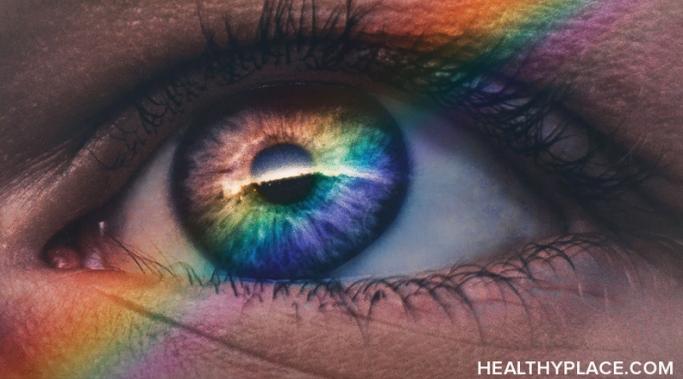Blogs
Once again, I'm going to admit something that's difficult to bring up because that's what Life with Bob is all about--transparency and honesty. So here goes: sometimes I feel burned out parenting a child with mental illness. I have found ways to cope, but parental burnout has still lodged its way into my life and my family's lives. It's affected the relationship I have with my son and the relationship I have with myself. What is parental burnout, and what can you do about it when you have a child with mental illness?
While it's only been a few months since I started writing as an author for "Living a Blissful Life," I have enjoyed offering a bit of hope during a stressful time for many. With so many struggles, negativity, and challenges in this world, I intended to show that it is still possible to live a blissful life. I hope you've been able to learn a few tips through my posts and realized you, too, have this opportunity.
We are on the verge of a new year, and that's making some of us anxious. This has been a challenging year, to say the least, and as we get closer to the end of the year, we are still living in uncertain times. I know that, personally, these uncertain times continue to cause tremendous amounts of anxiety as we approach the turn of the year.
I’m Cheryl Wozny and I am excited to join the team at HealthyPlace on the "Verbal Abuse in Relationships" blog. I am thankful that I have the opportunity to share with you my background experiences along with all of the tools I have gained through years of therapy and self-exploration.
Do you feel like you can't handle the holidays that are right around the corner? If you are in this boat, you aren't alone. I suspect this is going to be one of the hardest holiday seasons in years for many people and many families. However, if you have bipolar disorder, not being able to handle the holidays can be even worse than for the average person. Today, I'll be discussing what to do if you feel like you can't handle the holidays because you're overwhelmed or otherwise.
If you're finding yourself needing more rest -- taking more naps or going to bed earlier than you used to ever since you started your journey toward recovery -- don't worry. It's normal. The truth is, most people need more rest in recovery because emotional work is hard work, and it tires us out.
It's always important to be mindful of mentally ill loved ones, but it's especially important around the holidays when routines change, and symptoms can intensify as a result. I've noticed in the past that my brother (who has chronic mental health issues) can particularly struggle at Christmas time. This year, I'm hosting a family Christmas day gathering for the first time -- here are some of the steps I'm taking to make my brother's mental health a priority during the celebrations.
The holidays can be a difficult time for those struggling with anxiety or other mental health issues. Those in our lesbian, gay, bisexual, transgender, queer, intersex, asexual, etc. (LGBTQIA+) community struggling with anxiety have an added layer of difficulty during the holidays. I haven't celebrated a holiday with my family in many years. This is due to both my sexual orientation as well as my difficulties with mental illness. For those LGBTQIA+ individuals who have no ties to their family or a strained relationship with family, this time of year can be less than joyous. How can we rally to help our LGBTQIA+ mental health community feel more included?
Tomorrow is my first anniversary of sobriety, so I'd like to discuss why I quit drinking alcohol for good. It hasn't been an easy road, but the rewards have been endless.
Have you ever been asked to describe where you see yourself in five years during a job interview? Some people find this kind of question tricky to answer (if 2020 taught us anything, it's that a lot can change in one year, let alone five) while others have an entire career blueprint they've been building off of since their first career fair. Whether you're a fresh graduate uncertain of your next steps, transitioning careers later in life, or have been pursuing your calling ever since you were old enough to answer when someone asked what you wanted to be when you grew up, creating a long-term career plan with bipolar disorder comes with a unique set of challenges -- and rewards.









